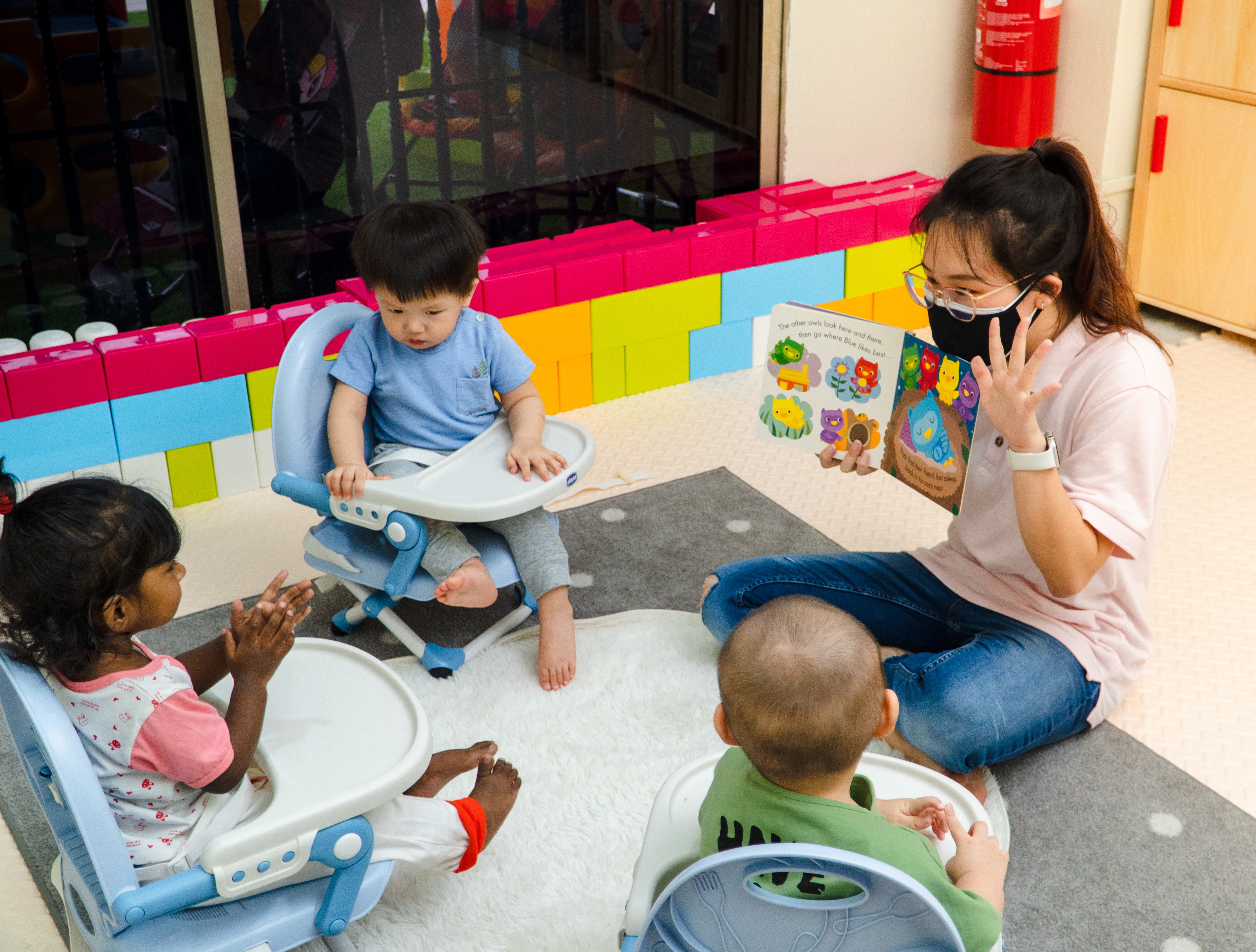What's Covered in This Article
Job prospects in Canada for early childhood educators and assistants
People working as an early childhood educator (E.C.E.) in Canada have different job prospects depending on which province they work.
For Early childhood educators and assistants, over the period 2019-2028, new job openings (arising from expansion demand and replacement demand) are expected to total 81,700 , while 76,900 new job seekers (arising from school leavers, immigration and mobility) are expected to be available to fill them.
Illustrative example(s) job titles of early childhood educators and assistants
- child care worker assistant
- child care worker, daycare
- daycare helper
- daycare supervisor
- daycare teacher
- daycare worker
- early childhood assistant
- early childhood education worker
- early childhood educator – preschool
- early childhood educator (E.C.E.)
- early childhood educator assistant
- early childhood program staff assistant
- early childhood supervisor
- preschool helper
- preschool supervisor
-
Exclusion(s)
- Child-care centre administrators (See 0423 Managers in social, community and correctional services)
- Elementary and secondary school teacher assistants (4413)
- Elementary school and kindergarten teachers (4032)
Employment requirements
This is what you typically need for the job.
Early childhood educator assistants
- Completion of a two- to four-year college program in early childhood education or a bachelor’s degree in child development is required.
- Licensing is required in Ontario and certification is required in British Columbia for early childhood educators. Licensing for early childhood educators is usually required in all other provinces and territories.
- Completion of an early childhood education assistant certificate program or post-secondary courses in early childhood education may be required.
- Licensing by a provincial or territorial association as an early childhood educator may be required.
Roles of early childhood educators and assistants in Canada
According to Statistics Canada’s Trust Centre:
Early childhood educators in Canada plan, organize and implement programs for children between the ages of infancy and 12 years.
Early childhood educator assistants in Canada provide care for infants and preschool- to school-age children under the guidance of early childhood educators.
Early childhood educators and assistants lead children in activities to stimulate and develop their intellectual, physical and emotional growth and ensure their security and well-being.
They are employed in child-care centres, daycare centres, kindergartens, agencies for exceptional children and other settings where early childhood education services are provided.
Supervisors of early childhood educators and assistants are also included in this unit group.
-
Main duties
Early childhood educators perform some or all of the following duties:
- Develop and implement child-care programs that support and promote the physical, cognitive, emotional and social development of children
- Lead activities by telling or reading stories, teaching songs, taking children to local points of interest and providing opportunities to express creativity through the media of art, dramatic play, music and physical activity
- Plan and maintain an environment that protects the health, security and well-being of children
- Assess the abilities, interests and needs of children and discuss progress or problems with parents and other staff members
- Observe children for signs of potential learning or behavioural problems and prepare reports for parents, guardians or supervisor
- Guide and assist children in the development of proper eating, dressing and toilet habits
- Establish and maintain collaborative relationships with co-workers and community service providers working with children
- May plan and organize activities for school-age children in child-care programs before and after regular school hours
- May supervise and co-ordinate activities of other early childhood educators and early childhood educator assistants.
Early childhood educator assistants perform some or all of the following duties:
- Support early childhood educators in carrying out programs that promote the physical, cognitive, emotional and social development of children
- Engage children in activities by telling stories, teaching songs and preparing crafts
- Prepare snacks and arrange rooms or furniture for lunch and rest periods
- Assist with proper eating, dressing and toilet habits
- Submit written observations on children to early childhood educators or supervisors
- Maintain daycare equipment and assist in housekeeping and cooking duties
- Attend staff meetings to discuss progress and problems of children
- May assist early childhood educators or supervisors in keeping records.
-
Employment requirements
Early childhood educators
- Completion of a two- to four-year college program in early childhood education
or
A bachelor’s degree in child development is required. - Licensing by a provincial or territorial association for early childhood educators (ECE) is usually required.
Early childhood educator assistants
- Completion of secondary school is required.
- Experience in child care is required.
- Completion of an early childhood education assistant certificate program or post-secondary courses in early childhood education may be required.
- Licensing by a provincial or territorial association for early childhood educators (ECE) may be required
- Completion of a two- to four-year college program in early childhood education
Are early childhood educators and assistants in demand in Canada?
Provinces such as British Columbia, New Brunswick and Nova Scotia are currently in need of qualified educators who want to migrate to Canada
These three provinces have the highest demand for early childhood educators.
Immigrate to Canada as an Early Childhood Educator
There are several immigration pathways to live and work in Canada as an early childhood educator or assistant because this is one of the most in-demand occupations in Canada
However, following are the top 4 ways to immigrate to Canada and get Canadian permanent residency visa as an early childhood educator or assistant:
PNP Eligible for Childhood Education
Following are the Provincial Nomination Visa for NOC Code 4214
- ECEs don’t feature in the Alberta Opportunity Stream Ineligible Occupations list
- Willingness of living and working in Alberta
- Have an active Express Entry profile
- Lowest CRS Score Of 2022 who received a Notification of Interest letter
British Columbia BC Provincial Nominee Program (BC PNP)
- B.C. has a critical need for more early childhood educators (ECEs).
- Under the BC PNP, these occupations are prioritized, increasing support for the care economy.
- Registrants whose occupation is ECEs, and who have a qualified, permanent job offer as an early childhood educator or assistant in B.C., get priority access to the BC PNP and may be invited to apply in periodic targeted draws.
Express Entry British Columbia
- To use the Express Entry BC option, you must have an IRCC Express Entry Profile Number and a Job Seeker Validation Code and meet the federal minimum language requirements.
- These indicate that you meet the eligibility criteria for one of the federal economic immigration programs subject to IRCC’s Express Entry system.
Nova Scotia Early Childhood Educator (ECE) Immigration Pilot
THIS IS NOT A LABOUR MARKET PRIORITIES DRAW.
If you received a letter of interest on December 20, 2022, you are invited to participate in the Nova Scotia Early Childhood Educator (ECE) Immigration pilot.
If you are interested in proceeding with this process, please contact the Nova Scotia Department of Education and Early Childhood Development by following this link: INTRODUCTION (novascotia.ca)
If you receive a valid Nova Scotia job offer you may utilize the Atlantic Immigration Program or the Nova Scotia Nominee Program: Skilled Worker Stream.
You will still be included in the Federal Express Entry pool.
The Atlantic Immigration Program is a federal immigration program that helps employers recruit skilled foreign workers and international graduates to meet labour needs.
The requirements for the Atlantic Immigration Program are:
- Job offer from an organization designated under the Atlantic Immigration Program.
- Valid passport and legal status in country of residence.
- Canadian high school diploma, or the equivalent from outside Canada with an educational credential assessment.
- Language test showing a minimum of CLB 5 in either official language.
- A reference letter showing one year of work experience in a field related to Early Childhood Development.
- The intention to permanently settle and reside in Nova Scotia.
The Nova Scotia Nominee Program: Skilled Worker Stream helps employers recruit foreign workers and recently graduated international students whose skills are needed in Nova Scotia. An employer can only hire foreign workers for positions they have been unable to fill with permanent residents or Canadian citizens.
The requirements for the Nova Scotia Nominee Program: Skilled Worker Stream are:
- Job offer from a Nova Scotia employer.
- Valid passport and legal status in country of residence.
- Proof of secondary school graduation in home country.
- Proof you have language ability equivalent to CLB 5 in either official language.
- A reference letter showing one year of work experience in a field related to Early Childhood Development.
- The intention to permanently settle and reside in Nova Scotia.
Please contact immigration.coordinator@novascotia.ca if you have any questions.
Nova Scotia International Graduates in Demand stream
- Has NOC 4214 – Early childhood educators and assistants as occupations that are in-demand in Nova Scotia
- To be eligible to the stream, you need to have a job offer from a Nova Scotia employer and have completed a minimum 30-week related course of study
New Brunswick Provincial Nominee Program: Express Entry Stream
- New Brunswick NB Express Entry stream accepts applications from candidates without a job offer, but that must have French proficiency (at least CLB7) and score at least 67 points on the Express Entry self-assessment grid.
- Effective May 20, 2022, Opportunities New Brunswick has temporarily paused the New Brunswick Express Entry Stream. The move comes following a surge in applications for the Stream.
- Please monitor their website for updates.
Professional certification and licensing for Early Childhood Educators in Canada
You might need to get a certification from a regulatory authority before you start working. Find out if this occupation is regulated in your province or territory.




